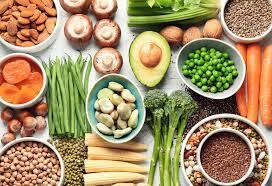One of the most pervasive myths about these diets is the notion that plant-based diets are protein-deficient. Not only is this incorrect, but proteins derived from plants have incredibly positive effects on one’s health. Continue reading to find out more information on plant based protein powder, such as where it can be found, how it may help your health, and how much you need to consume. Protein is necessary for your body to function correctly and should be included in your diet. Protein may be found in all cells that make up the human body. Your body utilises protein to build muscle, repair tissues, and manufacture enzymes, hormones, and other critical biochemicals. Your hair and nails are nearly entirely composed of protein, and your body uses protein to do so as well. The fact that the body does not store protein in the same manner that it stores carbohydrates and fat makes it even more vital. Because of this, you need to maintain a consistent protein intake to satisfy your requirements.
What Are The Advantages Of Consuming Protein From Plants?
Amino acids are the building blocks of proteins, and there are a total of 20 different kinds. The human body can synthesise or create 11 of these amino acids. In contrast, the other nine are referred to as “essential amino acids” since they must be obtained via food consumption. Several plant foods fulfil this criterion, such as quinoa, buckwheat, hemp, and soy, and one definition of a complete protein includes all nine necessary amino acids. One example of a complete protein is soy.
There is some evidence that consuming plant-based proteins may aid in weight reduction in addition to supplying the structural components necessary for healthy muscles and tissues. Animal proteins often have more calories and fat than plant-based proteins, while plant-based proteins typically have more fibre and vital elements. You may minimise the number of calories you consume while also improving the nutritional profile of your diet by substituting plant proteins for animal proteins. Consuming a wide range of plant-based proteins is not only the most excellent method to ensure that you receive all of the vitamins, minerals, and other nutrients that your body requires, but it may also be necessary to get all of the essential amino acids.
Where Can You Get Plant Protein?
Certain foods are far higher in the necessary macronutrient protein than others, even though a trace quantity of protein may be found in most plant-based diets. The following are some of the best sources of protein that come from plants:
- Almond Butter (8g per serving)
- Amaranth (9g per cup)
- Beanzas Negras (15g per cup)
- Buckwheat (6 per cup)
- Chickpeas (14.5g per cup)
- Seeds of Chia (4.5g per ounce)
- Hemp Seeds (9g per serving)
- Beans That Come From Kidneys (8g per cup)
- Green Peas (9g per serving)
- Lentils (18g per cup)
- Yeast for Nutritional Purposes (9g per serving)
- Oatmeal (14g per cup)
- Pumpkin Seeds (12g per cup)
- Kale (2g per cup)
- Spirulina (39g per serving)
- Quinoa (8g per serving)
Not only are these foods simple to add to your diet, but they also provide a high amount of plant-based protein.
Conclusion
Plant based protein powder is an essential component to include in your diet if you have the following goals: reducing body fat, enhancing your overall health, or just adhering to a healthy eating pattern. Put forth the effort to include the foods mentioned above into your regular diet, and you’ll be able to take advantage of the many advantages that plant-based proteins offer.























